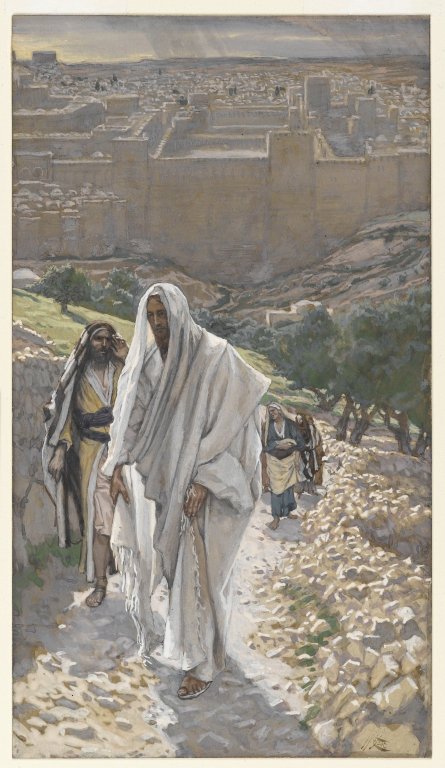Jesus and Jewish Prayer
Throughout Jesus’ ministry, there were various instances in which he stepped out of the public eye and entered into a private place of prayer. Jesus instructed his disciples not to pray “in the synagogues and at the street corners, [so] that they may be seen by others,” but rather “pray to [their] Father…in secret” (Matt 6:5-6)[1]. Some of the prayers Jesus prayed were of praise, blessing, and pleas for grace (Matt 11:25; 14:19; Jn 12:27). These multiple occurrences of prayer led his disciples to ask him how to pray. As a Jew trained in Torah, Jesus taught his disciples how to pray from a Jewish perspective. Jesus’ prayer, documented in Matthew 6:9-13, was later entitled “The Lord’s Prayer” in the Christian culture. According to Philip A. Harner, certain prayers, such as the Ahaba Rabba and the Kaddish, resembled the Lord’s Prayer in the sense that they reflected three common themes: “God’s name, kingdom, and will.”[2] Through an exegetical examination of Matthew 6:9-13, this study will identify and discuss these parallels.

“Jesus Goes in the evening to Bethany” by James Tissot
THE NAME
Yahweh
In beginning his prayer, Jesus deliberately addresses God as “Father.” The names for God in the ancient Judaism were handled with great care because they described the holiness of God.[3] In fact, according to Michael Joseph Gilligan, “[A] name articulate[s] a certain depth about the individual.”[4] To the Jews, the name of the Lord held more weight than any other because of its divine origin. During the Egyptian enslavement of the Hebrews, God encountered Moses in the form of a burning bush and commissioned Moses to deliver his people. Knowing that the Hebrews would question the authority of the One who sent him, Moses asked for the name of the Lord. God responded with יהוה (Yahweh), which translates as “…I am who I am” (Exod 3:14). Although the name of the Lord was revealed to the Hebrews through Moses, it soon became customary to refrain from saying it. This is because the second commandment demanded that none should ever “…take the name of the Lord in vain” (Exod 20:7). Michael Marlowe writes that in order to maintain a “…proper and salutary instinct of reverence,” the Hebrews corporately agreed to avoid saying the holiest name of the Lord.[5] As a man who was raised in the Jewish culture, Jesus held the name of the Lord in high esteem. Although Christ did not utter the most sacred name of the Almighty, it is quite possible that he was referring to the name Yahweh when he prayed “…hallowed be your name.” As a result, Jesus’ reverence for the name of God established a sense of familiarity between him and the Jews.
Category: In Depth, Summer 2016


